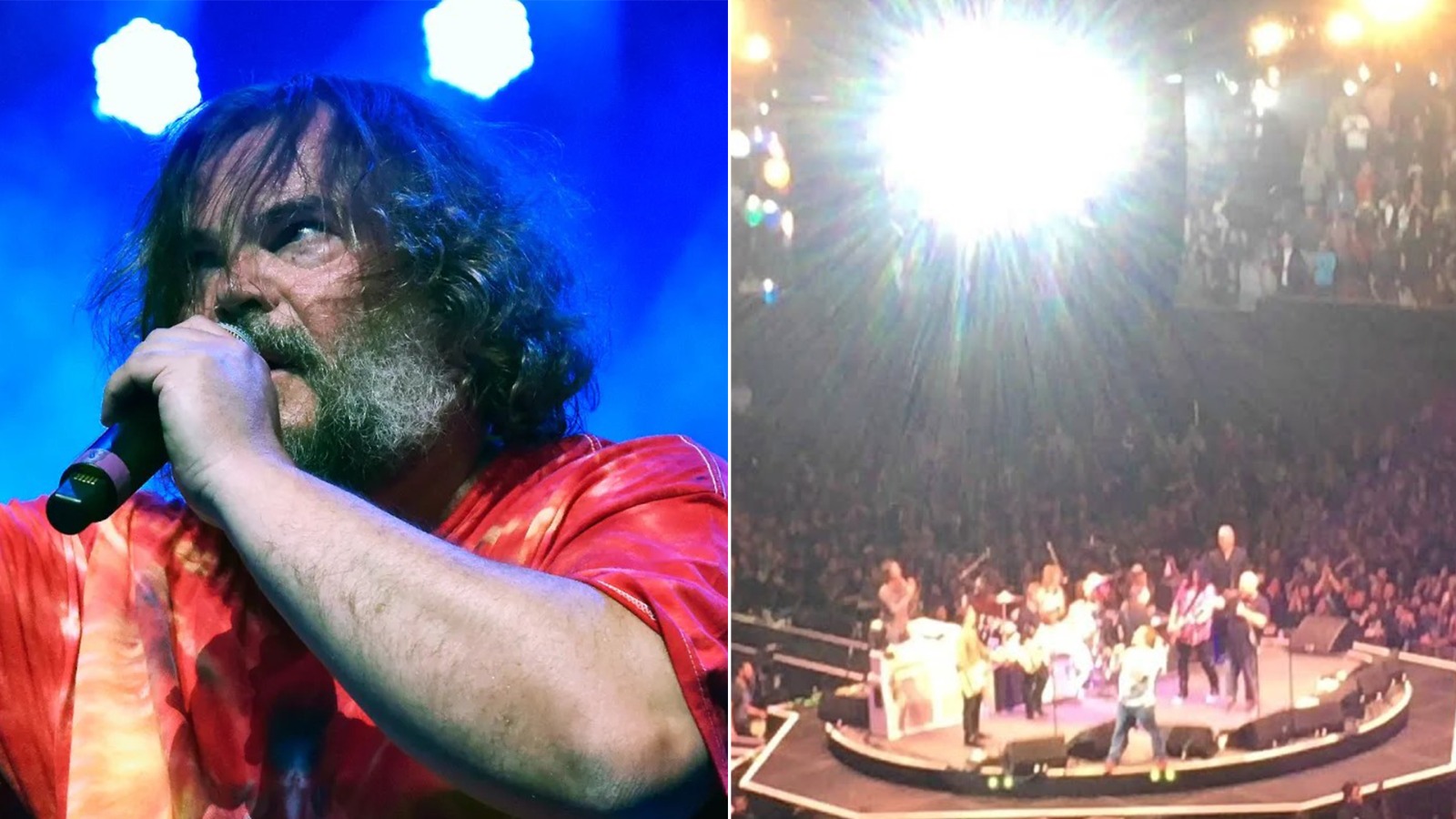In a fictional scenario, a renowned musician finds himself at the center of a significant controversy after making a provocative statement during a live performance. Kyle Gass, a long-time bandmate of actor and musician Jack Black in the rock comedy duo Tenacious D, made headlines after a comment about former President Donald Trump during a concert in Sydney, Australia.
The incident occurred during a lively show, where Jack Black presented Gass with a birthday cake on stage, thanking the audience for celebrating his bandmate’s birthday. Amidst the celebration, Gass made a startling remark: “Don’t miss Trump next time,” referencing a recent failed assassination attempt on the former president. The crowd responded with laughter and applause, but the comment quickly sparked a firestorm of reactions across social media and news outlets.
The controversial statement did not go unnoticed by high-profile individuals. Elon Musk, the influential owner of the social media platform X, publicly condemned the remark while simultaneously expressing his support for President Trump. Musk’s reaction came just hours after news broke that Trump had narrowly escaped injury when a shooter fired an AR-15 rifle at him during a public event.
Jack Black, known for his comedic talents and political engagement, is a vocal supporter of President Biden. He had previously posted about his endorsement of the incumbent Democrat, sharing a video from a high-profile Hollywood fundraiser hosted by George Clooney and Julia Roberts. In the video, Black humorously claimed he expected recognition in Biden’s victory speech for his support, emphasizing his commitment to democracy. “Because when democracy is at stake, Jack Black answers the call!” he declared, sporting American flag overalls to underscore his patriotic sentiment.
In the aftermath of Gass’s comment, Trump supporters swiftly compiled a list of celebrities and public figures who have made incendiary comments about the former president. This list highlighted various past controversies, including the infamous incident involving comedian Kathy Griffin, who faced widespread backlash in 2017 after posing for a photo with a prop resembling Trump’s severed head. More recently, U.S. Delegate Stacey Plaskett made headlines for a slip of the tongue during a televised interview. While discussing the classified documents case against Trump, she inadvertently said Trump should be “shot” before quickly correcting herself to say “stopped.”
The latest incident involving Tenacious D has ignited a broader debate about the escalating rhetoric in American politics. Activists and commentators on both sides of the political spectrum have weighed in, expressing concern over the implications of such inflammatory statements. Social media reactions have been polarized, with some condemning the rhetoric as dangerous and irresponsible, while others argue it reflects the deep-seated political divisions and frustrations within the country.
Amid the controversy, President Biden addressed the nation from the Oval Office, calling for a reduction in heated political discourse. “Politics must never become a literal battlefield,” Biden urged, emphasizing the need for civil engagement and respectful dialogue. “God forbid – a killing field,” he added, underscoring the severity of the current political climate and the potential consequences of unchecked vitriol.
Despite the heightened tensions, former President Trump has demonstrated resilience and a renewed determination to continue his political efforts. Speaking with the New York Post, Trump credited his Secret Service detail with saving his life during the recent assassination attempt. He later told Fox News’ Bret Baier that he is set to announce his pick for vice president, signaling his intention to move forward with his campaign and his vision for America’s future.
The incident involving Kyle Gass and Tenacious D serves as a stark reminder of the volatility and intensity of modern political discourse. It highlights the challenges of navigating a highly polarized environment where public figures’ statements can quickly escalate into national controversies. The debate over rhetoric and its impact on political violence remains a critical issue, with many calling for a return to more measured and respectful communication.
As the nation grapples with these challenges, the story of Kyle Gass and his controversial remark underscores the importance of understanding the power of words and the responsibility that comes with public influence. It also reflects the broader societal struggle to balance free expression with the need for civility and respect in political and public life. The ongoing conversation about the tone and tenor of political discourse will undoubtedly continue to shape the landscape of American politics in the years to come.
